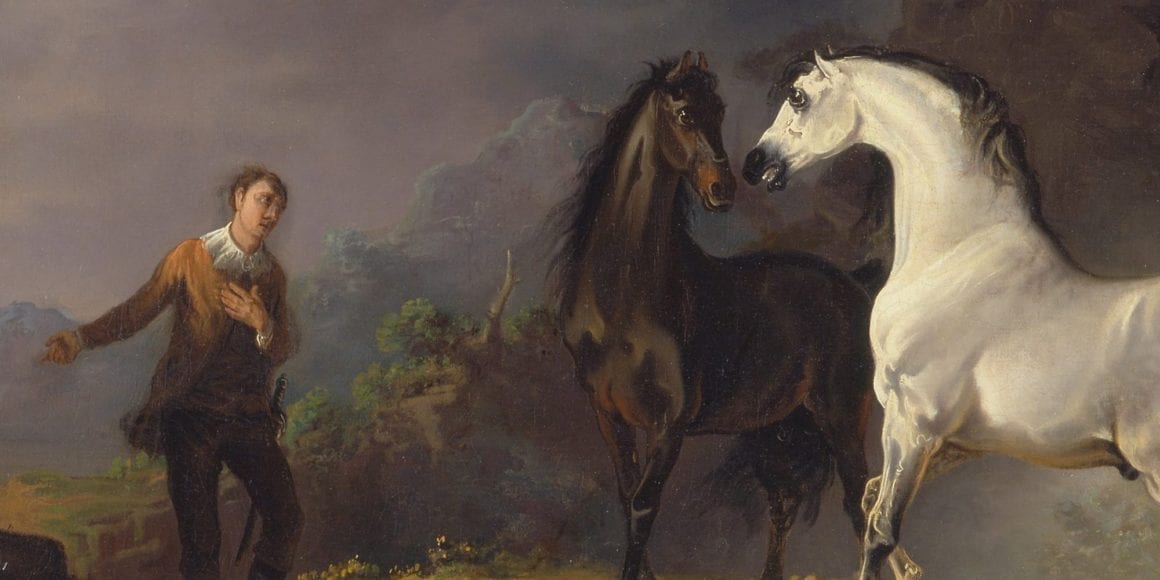Content or ‘stuff made available via the internet, Swiftian satire and homonyms’

Homonyms are words that are spelled and pronounced the same, but have different meanings.
Not to be confused with Houyhnhnms, which is the race of sentient horses from Gulliver’s Travels that rule over a debased form of proto-humans called Yahoos who were obsessed with scrabbling in the mud for pretty stones.
Content is a homonym.
It can mean variously: a state of peaceful happiness, the acceptance of adequacy despite wanting something better, the stuff that constitutes something else or the material of literary work as distinct from its style.
Finally, it can also mean: stuff made available via the internet.
Something that seems to have happened in marketing is that this final definition has achieved some sort of mythical, silver bullet, werewolf slaying, totemic status that has occluded all these other meanings.
How many pitches have you been in, or projects have you worked on recently when content marketing has been the default response to an uninspected or undiagnosed marketing woe?
One possible homonym has come to rule the others. Which is problematic.
In 1996 Bill Gates wrote an article titled “Content is king”. It’s an interesting read, and well worth 5 minutes. We can even forgive him for birthing hundreds of ‘if content is king, x is queen’ memes. Almost.
One of the most interesting things is that in the 21 years since, the arguments concerning ‘content as stuff-made-available-via-the-internet’ haven’t really evolved very much.
Content producers need to be paid. We’re not sure how to make that work without upsetting everyone. Adverts can be a bit crap and annoying. Businesses models are loss leaders or works in progress. All sounds a bit familiar eh?
Gate’s article is irrepressibly hopeful though.
“Those who succeed will propel the Internet forward as a marketplace of ideas, experiences, and products-a marketplace of content.”
When was the last time digital content (let alone branded content) made you feel like that?
I think this is, in part, because content has become an end it itself rather than a strategy for conveying good ideas or truly engaging audiences.
It’s been easy to forget the origin of the word in Latin, contentum. Things contained. Content is meant to contain things. If it doesn’t contain anything of note it’s just a vessel; it’s just form without content.
And if we keep lapping it up, we’re the Yahoos and we deserve it.
Swift said that he wrote Gulliver’s Travels to “vex the world rather than divert it”. He succeeded in part, because it’s a satire that is jam packed with ideas and provocations. It reflected the contemporary fears of the 16th century as well as addressing eternal truths. It propelled the already famous Swift to something akin to superstardom.
Content is king. But not in the way we’ve all become accustomed to reading about*.
So next time you find yourself knee deep in a vexing conversation about content marketing, remember the humble homonym.
*Also, if you’re responsible for these memes: stop it. Stop it now.
